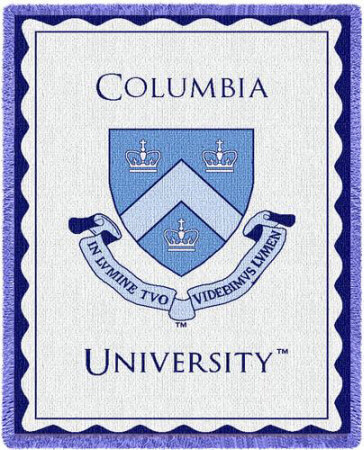
Graduate schools across the country are waiving the GRE or loosening their GRE requirements in 2024 to accommodate the needs of their applicants during this crisis—and for very good reason. After all, some countries are unable to offer the new GRE at-home option. Even if GRE students have access to the online test, taking the GRE at home may be a less-than-ideal situation for some test-takers. In this post, we’ll go over grad schools that don’t require the GRE in 2024, along with programs that have changed their GRE policy due to COVID-19, and what all this means for you.
Table of Contents
Grad Schools That Don’t Require the GRE in 2024
Graduate schools are making changes to their GRE requirements in a variety of ways. Some schools are going the whole nine yards, waiving the GRE at all or most of their graduate programs for every student applying this year. Other schools have somewhat stricter or less expansive requirements. Some schools are even allowing applicants to submit their ACT or SAT scores instead.
Read on for different examples of how schools and programs are responding to this crisis.
Graduate Schools That are Waiving the GRE for All Programs and All Students
- Bowling Green State University
- California State University Long Beach
- Duke University (with a few exceptions)
- Florida State University (only select programs)
- Illinois Institute of Technology (applicants to doctoral programs are still required to submit their scores)
- Middle Tennessee State University
- Mississippi State University (only select programs)
- University of Texas at San Antonio
- Texas Tech University
- American University School of Public Affairs (master’s programs only)
- Harvard University Department of Comparative Literature
- University of Louisville program in Sociology
- The University of North Texas School of Public Health
- Some graduate programs at the University of Illinois
- University of Massachusetts Amherst Isenberg School of Management
- UC Davis Graduate School of Management
- University of Rochester Simon Business School
- MBA programs (though these can be GMAT-optional, and in a few cases, such as at Emory University, you can apply for a test waiver altogether)
- JD (Law) programs
- MD (Medical) programs
- Some MJ (Journalism) programs, but not all. Check with the program before foregoing the test; for some of the most prestigious in the country, however, like Columbia University and UC-Berkeley, the test is no longer required for admission, but may qualify you for dual-degree programs or fellowships.
- Many graduate programs at The New School
- Most graduate programs (but not all!) at New York University’s Tisch School of the Arts
- University of the Arts, where the GRE is “encouraged,” but not required
- Southern New Hampshire University
- University of Maryland Global Campus
- The University of Illinois online Master’s of Computer Science (though not all University of Illinois programs will waive the requirement!)
- Other specific programs through different online platforms; check with yours to be sure!
- The University of Maryland, Baltimore County, like some other schools, doesn’t require GRE scores if your undergraduate GPA was above 3.5 (but you may need to submit a waiver request—common in these scenarios)
- If you’re applying to Johns Hopkins University’s Engineering for Professionals programs, you don’t have to take the GRE, but you do need to meet other stringent admissions requirements (another common scenario)
- Some universities, such as Georgia State University, have begun to remove GRE requirements for particular programs (at GSU, these are primarily education-based.
Specific Graduate Programs Waiving the GRE
Particular programs that are waiving the GRE requirement, even if their school is not waiving the requirement across all programs, include:
Several business schools have also made test requirement exceptions. Click here for a comprehensive list of these schools as well as other business programs that have changed their standardized testing policy in light of this crisis.
Graduate Programs Waiving the GRE in 2024 Under Certain Conditions
Some schools and programs only waive the GRE for students who are simply unable to take the test or meet other requirements for a waiver. The following programs will consider GRE waivers from students but may not automatically grant the waiver:
What if my school is not listed above?
The above lists are clearly not exhaustive, so we highly recommend that you check the websites of specific programs that you’re interested in. If the information about GRE waivers is not readily available, it’s probably safe to say that the program hasn’t made any changes to their policy (yet). Still, it might be worth shooting an email to admissions just to be absolutely certain.
In general, it’s a good idea to stay abreast of any updates released by the schools you’re considering. Many programs, particularly the ones with deadlines at the end of 2024, might still be waiting to see how the crisis develops before changing their standardized testing policies. The uncertainty of the current situation means that things can change at any moment, so it’s best to be prepared by keeping tabs on your programs of choice.
What if my program isn’t listed above?
A general rule of thumb: when it comes to determining whether or not you need to take the GRE (in COVID-19 times and beyond), it’s often a question of which programs, rather than which schools don’t require the GRE. Admissions to grad school tend to be on a program-by-program basis.
If you’re not sure whether your grad school program requires the GRE, it may be worth your time to do some research! Program admissions requirements change all the time, and the best place to get this information is straight from the horse’s mouth. If you can’t find this info on the graduate program admissions websites, email or call the admissions office to see if the program requires the GRE.
Here’s a quick breakdown of which program types may not require the GRE. We’ll explain each type more below as well.
| Program type | GRE requirements |
|---|---|
| Professional degrees | Varies by program; the GRE may be optional, or there may be another type of admissions test (e.g., the LSAT) |
| Non-doctoral terminal degrees | Varies by program; may waive the requirement or require a portfolio |
| Online programs | Varies by program |
Click to show more on professional degrees that don’t require the GRE
Which professional programs don’t require the GRE?
The good news: there are a few graduate programs for which you almost certainly won’t have to take the GRE. The bad news: these are the programs that usually have their own admissions tests for the field: LSAT for law school, GMAT for business school (although not always—an increasing number of business schools now accept GRE scores), MCAT for medical school, and so on. No, you almost certainly won’t have to take the GRE in addition to the professional-school test, but some testing, for most programs, is unavoidable.
These programs include:
Click to show more on non-doctoral terminal degrees that don’t require the GRE
Which non-doctoral programs don’t require the GRE?
Many don’t, some do. In many cases, your scores don’t matter for your admissions portfolio, but are required because of general graduate school requirements at the university. Once again, this is a “check with the admissions committee” scenario (but aren’t they all)! Some examples of programs that don’t require the GRE:
Getting a non-doctoral “terminal” degree sounds pretty bleak, but all it means is that it’s the final degree you can go for in your field. For example, most Master of Fine Arts programs are considered terminal degrees, because until recently, it wasn’t possible to undertake an arts-practice-based PhD. A Master of Architecture is a similar type of program. That’s not to say that these programs won’t require you to take the GRE for admission. However, in some cases, they may waive this requirement or not consider the scores in admissions decisions, choosing instead to focus on portfolios or other creative work.
Click to show more on online degrees that don’t require the GRE
Which online graduate programs don’t require the GRE?
Many of them! Again. . . not all. But here’s a handful:
If you’re planning to get your master’s online, take comfort in the fact that fewer online programs require the GRE than “live” programs do. In some cases, this is to popularize the platform, making barriers to entry lower. In others, however, it speaks to the quality of the program itself. While there are many excellent online master’s programs, it’s a good idea to research the reputation of those you’re applying to before you drop the application fees and miss your window for taking the GRE.
Other Considerations for Grad Schools That Don’t Require the GRE
However, just because a program doesn’t require the GRE, don’t assume that it’s less prestigious or less worthwhile than programs that do. Many “Executive” programs (think “Executive MBA”), targeted at people who have worked in the field for at least several years, require work experience, rather than test scores, as an admissions criterion. Similarly, if your undergrad GPA is outstanding (think over 3.0), programs may waive their GRE requirements. And then there are some schools—but very, very few!—that have decided not to use the GRE as an admissions factor for a variety of graduate programs.
More FAQs on Graduate Schools Waiving the GRE in 2024
Should I change programs to avoid taking the GRE?
If your graduate school or program is not yet waiving the GRE for 2024 (or may not be waiving it at all), we definitely do not advise changing your target programs just to avoid taking the GRE! If your deadlines are months away, you might benefit from waiting to see if there are any updates to your schools’ standardized testing policies down the line. And if you can’t afford to wait, taking the GRE at home is not the worst thing that could happen.
What if I already took the GRE?
If you already took the GRE and you’re applying to schools that have waived the requirement, you probably can still submit it as a part of your application. These programs will likely consider your GRE scores in their holistic look of your application, but you won’t have a leg up over other students who take advantage of the GRE waiver. Whatever the case may be, definitely check to see if your program addresses this on their website.
What other tests are waived?
In addition to the GRE, many programs that accept the GMAT are also waiving that test (but note that some schools may be waiving one test but not the other). For international students, many schools are allowing the Duolingo English Test to replace TOEFL and IELTS. Because of the weight MCAT and LSAT have on med school and law school applications, respectively, you’d be hard-pressed to find programs that waive these particular tests.
![]()
Best of luck as you continue on your application journey! We hope you’re able to take full advantage of the opportunities available to make it less stressful. If you’re just getting started, check out our guide to graduate school to learn all the basics about grad school!







Leave a Reply